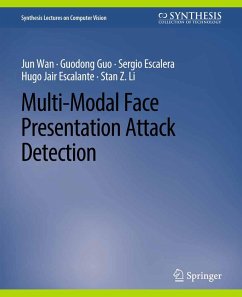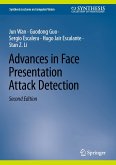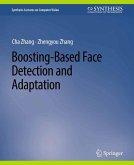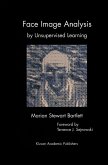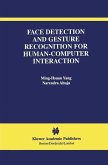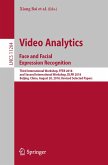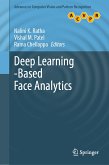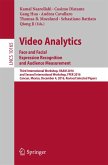Jun Wan received a B.S. degree from the China University of Geosciences, Beijing, China, in 2008, and a Ph.D. degree from the Institute of Information Science, Beijing Jiaotong University, Beijing, China, in 2015. Since January 2015, he has been a Faculty Member with the National Laboratory of Pattern Recognition (NLPR), Institute of Automation, Chinese Academy of Science (CASIA), China, where he currently serves as an Associate Professor. He is an IEEE Senior Member and a director of Chalearn Challenges. He has published more than 50 research papers and has been guest editor at TPAMI, MVA, and Entropy. His main research interests include computer vision, machine learning, especially for face and pedestrian analysis (such as attribute analysis, face anti-spoofing detection), gesture and sign language recognition. He has published papers in top journals and conferences, such as JMLR, T-PAMI, T-IP, T-MM, T-CYB, TOMM, PR, CVIU, CVPR, AAAI, and IJCAI. He has served as the reviewer on several journals and conferences, such as JMLR, T-PAMI, T-IP, T-MM, T-SMC, PR, CVPR, ICCV, ECCV, AAAI, and ICRA.
Guodong Guo received a B.E. degree in automation from Tsinghua University, Beijing, China, and a Ph.D. degree in computer science from University of Wisconsin, Madison, WI. He is currently the Deputy Head of the Institute of Deep Learning, Baidu Research, and also an Associate Professor with the Department of Computer Science and Electrical Engineering, West Virginia University (WVU). In the past, he visited and worked in several places, including INRIA, Sophia Antipolis, France; Ritsumeikan University, Kyoto, Japan; and Microsoft Research, Beijing, China; He authored a book, Face, Expression, and Iris Recognition Using Learning-based Approaches (2008), co-edited two books, Support Vector Machines Applications (2014) and Mobile Biometrics (2017), and published over 100 technical papers. He is an Associate Editor of IEEE Transactions on Affective Computing, Journal of Visual Communication and Image Representation, and serves on the editorial board of IET Biometrics. His research interests include computer vision, biometrics, machine learning, and multimedia. He received the North Carolina State Award for Excellence in Innovation in 2008, Outstanding Researcher (2017-2018, 2013-2014) at CEMR, WVU, and New Researcher of the Year (2010-2011) at CEMR, WVU. He was selected the "People's Hero of the Week" by BSJB under Minority Media and Telecommunications Council (MMTC) in 2013. Two of his papers were selected as "The Best of FG'13" and "The Best of FG'15", respectively.
Sergio Escalera (www.sergioescalera.com) obtained a P.h.D. degree on multi-class visual categorization systems at Computer Vision Center, UAB. He obtained the 2008 best Thesis award on Computer Science at Universitat Autonoma de Barcelona. He is ICREA Academia. He leads the Human Pose Recovery and Behavior Analysis Group at UB, CVC, and the Barcelona Graduate School of Mathematics. Heis Full Professor at the Department of Mathematics and Informatics, Universitat de Barcelona. He is an adjunct professor at Universitat Oberta de Catalunya, Aalborg University, and Dalhousie University. He has been visiting professor at TU Delft and Aalborg Universities. He is also a member of the Computer Vision Center at UAB. He is series editor of The Springer Series on Challenges in Machine Learning. He is a member and fellow of the European Laboratory of Intelligent Systems ELLIS. He is vice-president of ChaLearn Challenges in Machine Learning, leading ChaLearn Looking at People events. He is a co-creator of Codalab open source platform for challenges organization. He is Chair of IAPR TC-12: Multimedia and visual information systems. His research interests include: statistical pattern recognition, affective computing, and human pose recovery and behavior understanding, including multi-modal data analysis, with special interest in characterizing people: personality and psychological profile computing.
Hugo Jair Escalante received a Ph.D. degree in computer science, for which he received the best Ph.D. thesis on Artificial Intelligence 2010 award (Mexican Society in Artificial Intelligence). He is a researcher scientist at Instituto Nacional de Astrofisica, Optica y Electronica, INAOE, Mexico. In 2017, he received the UANL research award in exact sciences. He is secretary and member of the board of directors of ChaLearn, a non-profit organism dedicated to organizing challenges, since 2011. He is information officer of the IAPR Technical Committee 12. Since 2017, he is the editor of the Springer Series on Challenges in Machine Learning. He has been involved in the organization of several challenges in machine learning and computer vision, collocated with top venues; see http://chalearnlap.cvc.uab.es/. He has served as co-editor of special issues in the International Journal of Computer Vision, the IEEE Transactions on Pattern Analysis and Machine Intelligence, and the IEEE Transactions on Affective Computing. He has served as area chair for NIPS 2016-2018, he is data competition chair of PAKDD 2018, and has been member of the program committee of venues like CVPR, ICPR, ICCV, ECCV, ICML, NIPS, and IJCNN. His research interests are on machine learning, challenge organization, and its applications on language and vision.
Stan Z. Li received a BEng degree from Hunan University, China, a MEng degree from National University of Defense Technology, China, and a Ph.D. degree from Surrey University, United Kingdom. He is currently a chair professor of Westlake University. Before that, he was a professor and the director o Center for Biometrics and Security Research (CBSR), Institute of Automation, Chinese Academy of Sciences (CASIA), and was at Microsoft Research Asia, as a researcher from 2000-2004. Prior to that, he was an associate professor at Nanyang Technological University, Singapore. His research interests include pattern recognition and machine learning, image and vision processing, face recognition, biometrics, and intelligent video surveillance. He has published more than 200 papers in international journals and conferences, and authored and edited 8 books. He was an associate editor of the IEEE Transactions on Pat-tern Analysis and Machine Intelligence and is acting as the editor-in-chief for the Encyclopedia of Biometrics. He served as a program co-chair for the International Conference on Biometrics 2007 and 2009, and has been involved in organizing other international conferences and workshops in the fields of his research interest. He was elevated to IEEE fellow for his contributions to the fields of face recognition, pattern recognition, and computer vision, and he is a member of the IEEE Computer Society.

